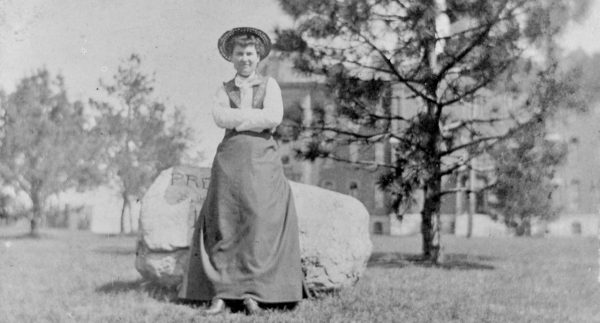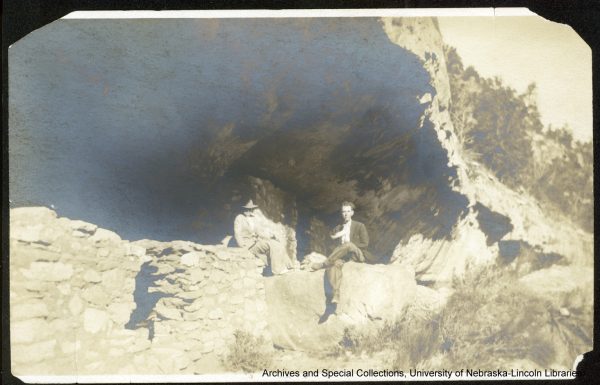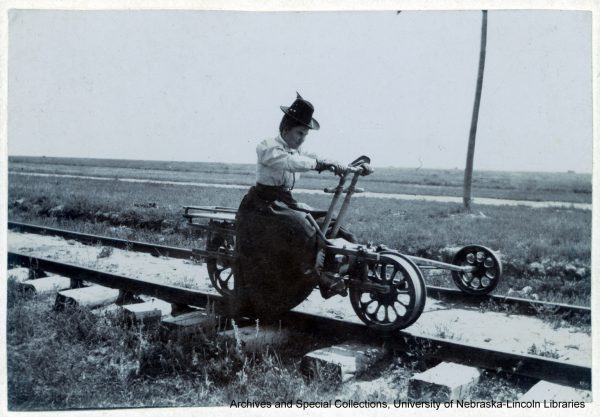Willa Cather: Great American Novelist

This post went out to subscribers to my Substack newsletter on November 3. Check out all the posts, including ones from the archives not reposted here, and subscribe here.
Inspired by then-President Trump’s call for a commission on “patriotic education,” in September 2020 Bloomberg Opinion asked its columnists to recommend books that might be appropriate for that cause. Here’s what I wrote:
A patriotic reading list should encompass founding documents, philosophical writings and political speeches. But even in the U.S., whose ideals of liberty and equality are essential to its nationhood, abstractions are not enough. National identity requires a sense of shared history and experience—a common heritage that goes beyond one’s own family and local culture. We need to see something of ourselves in our fellow Americans, present and past.
With that goal in mind, my choice is Willa Cather’s novel, “My Àntonia,” a story of settlers on the Nebraska prairie in the late 19th century. The title character is a girl whose family has immigrated from Bohemia. They arrive on the same train as Jim, an orphaned boy from Virginia coming to live with his grandparents. The adult Jim, a successful New York lawyer, narrates the story. Jim, whose experiences and attitudes mirror Cather’s, represents a cosmopolitan and great-hearted American spirit, formed on the prairie and at home in the wider world.
“He loves with a personal passion the great country through which his railway runs and branches,” says a friend in the chapter that frames the story. He raises capital for western enterprises and “is still able to lose himself in those big Western dreams.”
“My Àntonia” is often assigned to high school students—I first read it in 10th grade—but few teenagers can appreciate it. It’s a book for the experienced: a story of displacement and opportunity, of growth and progress inextricably bound together with loss. Particular in time and place, Cather’s stories, characters, and setting embody universal themes in an especially American way. “You are not the first to be uprooted,” she tells us, “to see the world around you change, to learn and grow and struggle to find your true path. You are not the first to seek hope in the new.”
In the genealogical sense, “My Àntonia” is not the story of me or my people. I hail from the rolling hills of the Carolina Piedmont and found my home in southern California. My family tells no immigrant stories. Though I’ve traveled the length and breadth of the U.S. and lived in Texas, Boston and the Delaware Valley, I’ve never set foot in Nebraska.
But ancestors alone do not a nation make, certainly not in the U.S. “My Àntonia” honors the people from many places who made the larger whole by knowing and tending local ground. Cather evokes the stark beauty of the prairie in quietly magnificent prose. Yet unlike some localist literature, “My Àntonia” doesn’t celebrate staying put. Some characters remain on the prairie, some migrate, some return. The novel doesn’t treat leaving as a betrayal. It’s too American for that.
With all due respect to Mark Twain, you can make the case that Cather is the great American novelist. She’s certainly the great novelist of the American West, with its mixture of cultures and landscapes. The West represents an extreme version of what Daniel Boorstin called a “fertile verge,” where creativity springs from encounters of difference: geographic, political, technological, cultural, or generational.

In a recent NYT Book Review interview, Ken Burns agreed: “One writer I love is Willa Cather. People say, Was it Melville or Hemingway or Twain who wrote the great American novel, meaning “Moby-Dick” or “A Farewell to Arms” or obviously “Huckleberry Finn,” where, as Hemingway rightly said, American literature begins. But what about “O Pioneers!” or “My Ántonia”?” (He also gave a shoutout to the great science fiction writer Roger Zelazny, with the sad note that “now I can’t even find his books on a bookshelf at a reputable bookstore.”)
In my ambition class at Chapman, we taught Cather’s The Song of the Lark, about a girl from a small town in Colorado’s journey to become a world-class opera singer. We followed it with the 2020 film Minari, about a Korean-American family that moves to rural Arkansas so the father can pursue his dream of farming. He wants to raise Korean vegetable for the country’s burgeoning immigrant population. Set in the 1980s, it’s based on creator Lee Isaac Chung’s childhood experiences. Although the two works have some thematic overlaps—I thought of this part of the course as “the American dream” section—I only discovered a more direct connection when doing online research in preparation for teaching Minari.

During last year’s awards season, Chung published an op-ed in the LAT that explained how the film came to be:
In early 2018, my journey as a filmmaker seemed to be closing. For the sake of my family, I decided to take a full-time teaching job to join the ranks of responsible workers, and this meant I had a few months to write one final script before my job began. Sitting in my regular coffee shop in South Pasadena, at the same table where I had schemed and planned my battles for years, I felt desperate to try a new approach. I closed my computer, shut my eyes and decided to take seriously whatever I heard in return. After a time, two words came to me, and they were clear only because they were so unfamiliar: “Willa Cather.”
First, let me clear up that this isn’t normal for me. I don’t sit around hearing voices, but on this occasion, my ears rang with “Willa Cather,” and I needed to investigate what this meant. Was she an actress? A historic figure? I’m embarrassed to admit that I had to search online to learn that Willa Cather is one of our greatest novelists. I came across an additional detail that seemed to be the key to the mystery; Willa Cather died in 1961, and her work was entering public domain.
Chung went to the library and checked out My Ántonia, choosing it because it had the most copies among Cather’s works. He considered making it into a movie, but decided not to after learning that Cather didn’t want any movies made about her work. (She had a terrible experience with A Lost Lady.) Instead, he began researching her life for a possible biopic and found many parallels with his own. Ultimately, he drew on something she said about her own work: “Life began for me, when I ceased to admire and began to remember.” He began to write down his own memories. Minari was the result.
If you’ve never read Willa Cather, or only done so under school coercion, I highly recommend dipping into her work. In addition to the print editions, there are good audiobooks of her primary novels.
Now will someone please invite me to speak in Nebraska? I’ve only been there on Zoom.